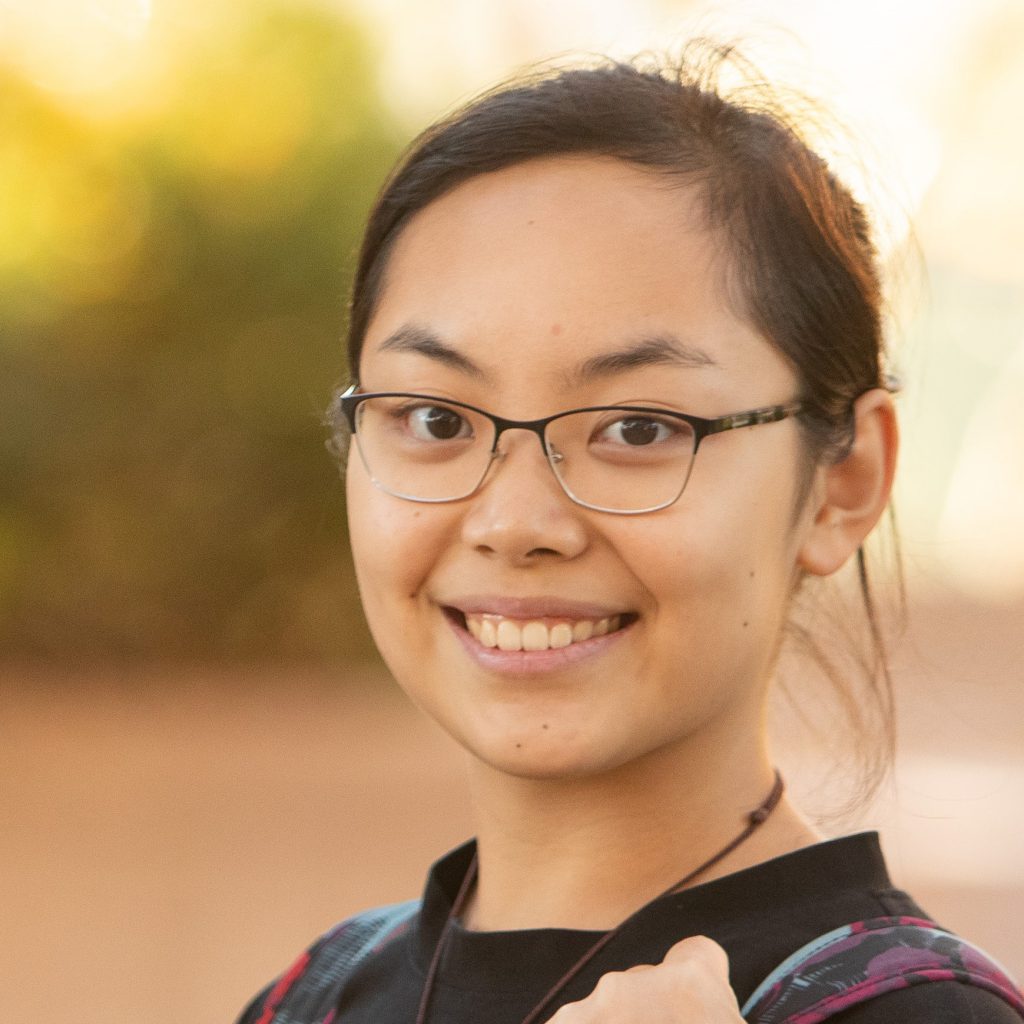
Each year, the Institute of Child Development (ICD) awards the Anne D. Pick Award for an Outstanding Developmental Psychology Senior. The award honors ICD Professor Emeritus Anne Pick’s commitment to undergraduate students and their education. Students chosen for the award demonstrate excellence in both research and academics in the area of child development.
In 2020, ICD honored two students with the Anne Pick Award. One of this year’s recipients is Yue Zhao. Zhao has served as an undergraduate research assistant in the Developmental Social Cognitive Neuroscience Lab, co-directed by ICD Professors Stephanie M. Carlson and Philip D. Zelazo, where she was responsible for running test sessions and collecting data in an emotional regulation study and a prosocial behaviors study. After completing her undergraduate degree, she hopes to pursue a path that combines her two passions of applying research findings to real-world practices and working with children in early childhood settings.
What made you want to study developmental psychology?
How people change, learn, and develop was always something fascinating to me, but I wasn’t aware of the developmental psychology program at the U when I first started college undecided in major. I went through a lot of struggles, changes, and exploration of “who am I” during my first year of major exploration. It was until I took the Intro to Child Psychology course in my sophomore year when I realized DPSY was what I was looking for! (Fun fact: I took Intro to Child Psychology largely because of the birth of my niece back in China—I wanted to learn more about her development and how to support her!)
What kind of research are you involved in?
I was fascinated by the course content of CPSY 4343, Cognitive Development, especially studies about executive function (EF) and mindfulness, so it motivated me to get involved in research around these topics. After doing some research on ICD labs, I found the research studies in DSCN lab (Professor Zelazo and Carlson’s lab) sounded really exciting to me! Gratefully, I was offered an undergraduate RA position at the lab (it was like a dream come true)! My main responsibilities were running test sessions and collecting data in an emotional regulation study and a prosocial behaviors study, both also investigating the relationships between these behaviors/skills and EF skills. I learned so much about study design, ethics of research, and the process of data collection. Lab sessions were also valuable experiences for me to learn the most up-to-date research studies and trends in the field.
What do you find most interesting about child development?
I found “sensitive period” the most interesting about child development. It can include a wide variety like sensitive periods for language development, face recognition, visual development, etc. The coolest for me is the sensitive period for language. It’s fascinating that young children can pick up multiple languages so naturally when exposed to these languages early on, while it takes much more effort for adults to learn a foreign language. I am still amazed by a child I met in the U of M Child Development Center who spoke three native languages—English, Spanish, and Mandarin. As a dual-language speaker (Mandarin as my native language and English as a second language), I think the sensitive period for language is an amazing gift for everyone!
What are your plans for after graduation?
That’s a great question! I am honestly not quite sure yet. What I know now is that I’m really interested in research and transferring research findings into real-world practices. At the same time, I love working in early childhood settings with little ones directly. So, I’m still looking for a good plan to combine my passions in these areas!
How would you describe your experience at ICD?
My experiences at ICD are amazing and memorable. (I always believe it was one of the best decisions I’ve ever made to be part of ICD.) Academically, I really enjoyed all the child psychology courses I took. The instructors and professors were extremely supportive, knowledgeable, and passionate about their field of expertise. Many are leading experts in the field, so they are great resources for me to learn and ask questions from. The research and work opportunities with children (UMCDC and the Shirley G. Moore Lab School) also offered valuable real-world experiences in child development. Plus, the staff, faculty, and students in ICD are all super supportive—ICD gives me a strong sense of belonging so that I know I can thrive both within and beyond my undergraduate journey with all the support I have!



